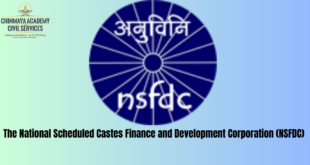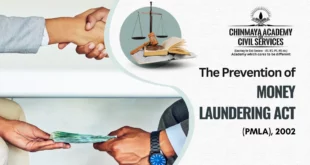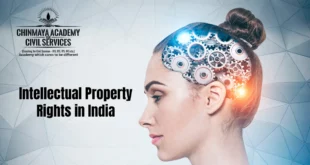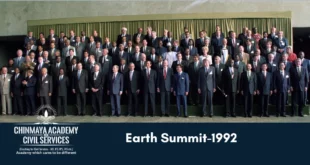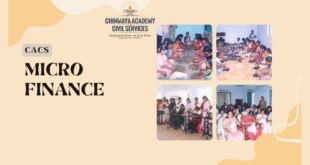Concept : Governments impose anti-dumping duties as a trade remedy measure to protect domestic industries from unfair competition resulting from the dumping of goods by foreign producers. Dumping: Dumping refers to the practice of exporting goods to another country at prices lower than their normal value, typically the price in …
Read More »Purchasing Managers’ Index: The Economic Health Indicator
TABLE OF CONTENTS News Concept Calculation Components of PMI PMI Releases News: Business activity in the services sectors likely clocked their fastest expansion in more than 13 and a half years in March, aided by a record uptick in export orders, as per the HSBC India Services Purchasing Managers’ Index …
Read More »NSFDC
The National Scheduled Castes Finance and Development Corporation (NSFDC) is a public sector undertaking under the Ministry of Social Justice and Empowerment, Government of India. It was established in 1989 with the objective of providing financial assistance, concessional loans, and skill development training to members of Scheduled Castes (SCs) for …
Read More »The Prevention of Money Laundering Act (PMLA), 2002
The Prevention of Money Laundering Act (PMLA), 2002, is a comprehensive legislation enacted by the Indian Parliament to combat money laundering and related activities. It aims to prevent the use of the financial system for the purpose of concealing or laundering proceeds of crime, to provide for the confiscation of …
Read More »INTELLECTUAL PROPERTY RIGHTS IN INDIA
Intellectual property deals with the human capital applied for creativity and inventions. Intellectual Property Rights are legal rights given to a creator or innovator to enjoy the economic benefits of their invention or creation. These are territorial rights registered with a legal authority. It provides a secure environment for investors, …
Read More »Earth Summit
The Earth Summit, often referred to as the United Nations Conference on Environment and Development (UNCED), took place in Rio de Janeiro, Brazil, from June 3–14, 1992. This international conference brought together political leaders, diplomats, scientists, media representatives, and non-governmental organisations (NGOs) from 179 countries in an attempt to focus …
Read More »Micro Finance
Introduction Microfinance is a method of lending very small sums to individuals to start or expand a small business. These borrowers tend to be low-income individuals. Features of Microfinance in India The principal amount borrowed is less than Rs 1 lakh Interest rates are lower than normal banks Does not …
Read More »Four years after Swachh: cleaning excreta for roti
A Rajasthan village is free of open defecation — on paper The narrow village street is lined with gutters, dotted with excreta flushed out from latrines inside upper caste homes. Santa Devi pulls a corner of her sari over her mouth and begins to push the morning quota of waste …
Read More » Chinmaya IAS Academy – Current Affairs Chinmaya IAS Academy – Current Affairs
Chinmaya IAS Academy – Current Affairs Chinmaya IAS Academy – Current Affairs


